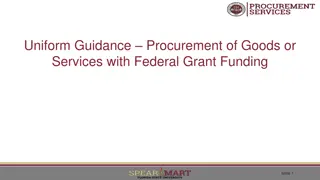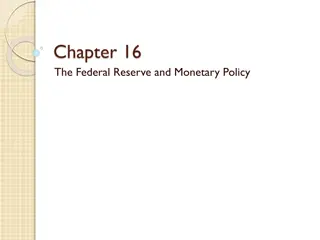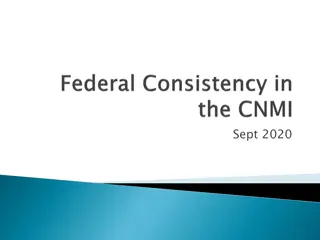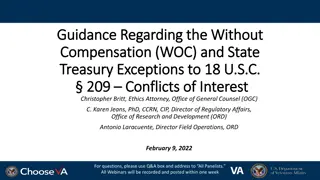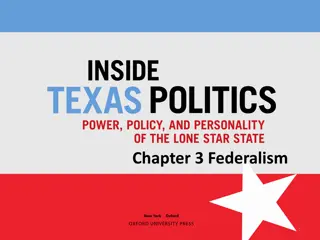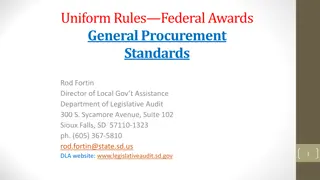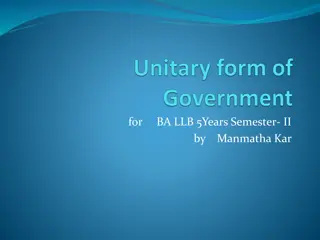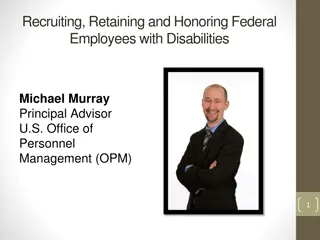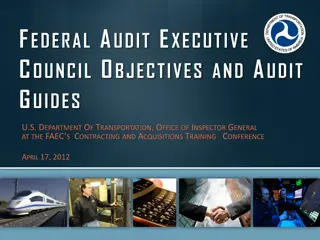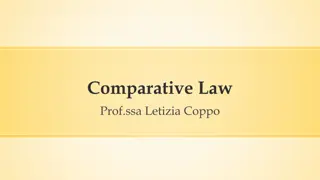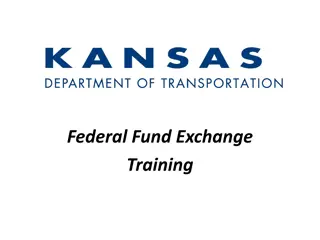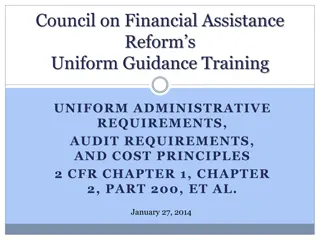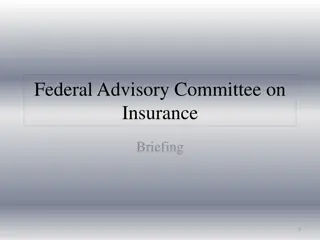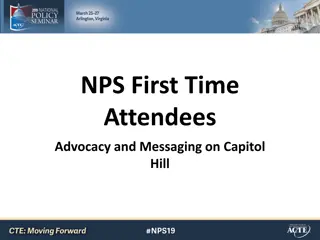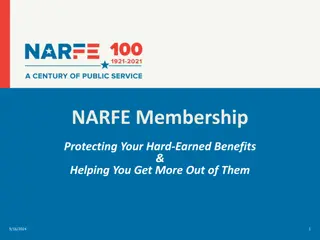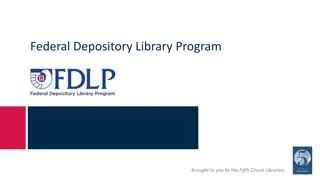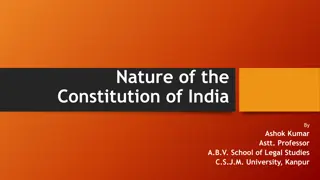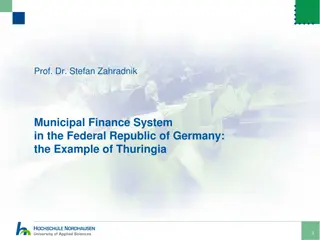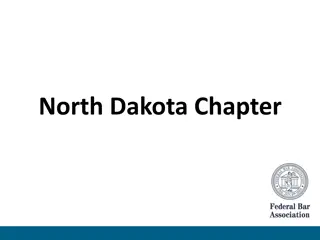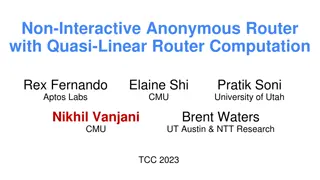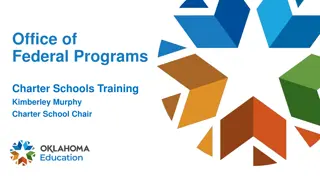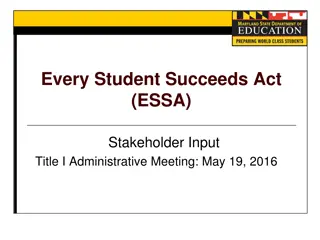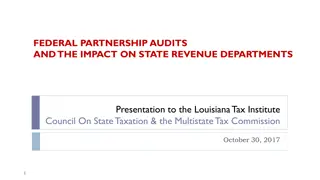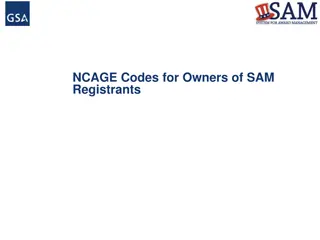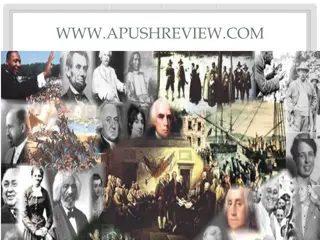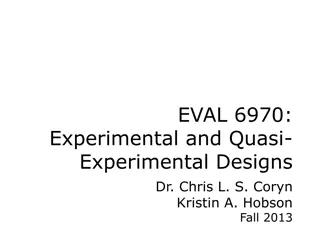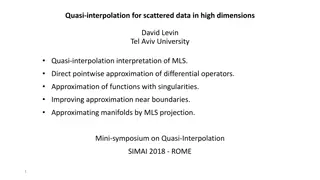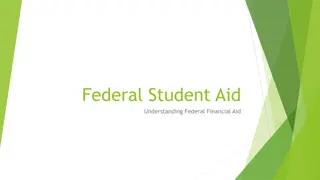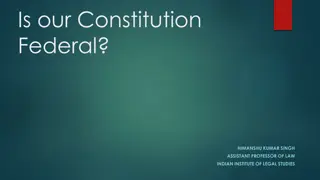Military & Overseas Voting: Special Forms and Deadlines Explained
Military and overseas voters have special forms and deadlines under the Uniformed and Overseas Citizens Voting Act (UOCAVA) and the Military & Overseas Voters Act (MOVE). These laws allow these voters to register and vote absentee in federal elections using forms like the Federal Post Card Applicati
0 views • 25 slides
Federal Grant Funding: Uniform Guidance for Procurement of Goods or Services
When purchasing goods or services, especially with federal grant funding, the process is subject to the Federal Uniform Guidance (UG) and University procurement procedures. The UG outlines different thresholds for procurement, such as Micro-Purchase, Small Purchase, and Competitive Formal Solicitati
0 views • 30 slides
Understanding the Federal Reserve System and Monetary Policy
Delve into the history, structure, and functions of the Federal Reserve System, including its role in implementing monetary policy to stabilize the economy. Explore the establishment of the Federal Reserve Act of 1913, the structure of the Federal Reserve, and its pivotal role in serving the governm
0 views • 35 slides
Understanding Federal Consistency in Coastal Zone Management
This presentation serves as an introduction to Federal Consistency in the context of Coastal Zone Management, emphasizing the importance of compliance with enforceable policies outlined in the Coastal Zone Management Act. It highlights the role of the Division of Coastal Resources Management (DCRM)
1 views • 13 slides
Understanding Quasi-Experiments in Research
Quasi-experiments are research studies that resemble experiments but do not involve random assignment of participants to treatment groups. This approach is taken when random assignment is challenging or when ethical considerations come into play. Unlike true experiments, quasi-experiments can provid
0 views • 15 slides
Understanding Nonexperimental and Quasi-experimental Studies
Nonexperimental and quasi-experimental studies resemble experiments but lack random assignment, making them valuable for group comparisons without establishing causation. This type of research design looks at differences between groups that already exist, focusing on group differences rather than ca
1 views • 35 slides
Understanding 18 U.S.C. 209 and Its Impact on VA Research Personnel
DOJ guidance has clarified the application of 18 U.S.C. 209 to VA employees receiving compensation from non-Federal entities for research. This law prohibits Federal employees from receiving any form of compensation from non-Federal entities for services expected as Government employees. The webinar
0 views • 20 slides
Understanding Federalism in the United States
Explore the different types of governmental systems and the distribution of power between the federal and state governments. Learn about the advantages of federalism, how Texas utilizes federal funding, and the evolution of cooperation and coercion within the federal system over time. Dive into conf
7 views • 17 slides
Quasi-Judicial Roles and Ethical Responsibilities in Decision-Making
Exploring the distinction between legislative and quasi-judicial roles in decision-making processes, this content delves into examples, principles, and ethical responsibilities. It emphasizes fairness, impartiality, and the importance of public trust in upholding ethical standards within quasi-judic
0 views • 34 slides
Understanding Federal Awards Procurement Standards
Explore the Uniform Rules-Federal Awards Procurement Standards under 2 C.F.R., addressing common federal findings, state versus non-federal entities, and state compliance requirements. The information provided delves into the purpose of procurement standards and the importance of adhering to federal
1 views • 48 slides
Comparison of Unitary and Federal Government Systems
This presentation compares unitary and federal government systems, highlighting differences in the number of governments, constitution type, flexibility, division of powers, supremacy of constitution, judiciary independence, and legislative structure. It explains how unitary governments have a singl
0 views • 7 slides
Recent Applications of Quasi-Poly Time Hardness in Densest k-Subgraph
Recent applications of the Birthday Repetition technique have demonstrated the quasi-polynomial time hardness in various computational problems, including AM with k provers, Dense CSPs, Free games, and Nash equilibria. These applications also explore the potential implications in signaling theory an
0 views • 18 slides
Federal Employment of Individuals with Disabilities Overview
This detailed content highlights the efforts of recruiting, retaining, and honoring federal employees with disabilities, focusing on Executive Order 13548 aiming to enhance employment opportunities for individuals with disabilities. It also provides historical data on disability new hires and the pe
0 views • 49 slides
Federal Audit Executive Council - Contract Closeout Guide Highlights
The Federal Audit Executive Council (FAEC) plays a vital role in coordinating issues affecting the Federal audit community, with a key emphasis on audit policy and operations. The FAEC's contracting committee has developed audit guides covering various topics like acquisition planning, market resear
1 views • 12 slides
Understanding the Federal System in American Law
The American legal system is rooted in a division of powers between the States and the Federal government. Federal law fills gaps and complements State laws, with Federal courts having jurisdiction over disputes involving different States or Federal issues. The Constitution and Bill of Rights protec
0 views • 23 slides
Understanding Federal Fund Exchange Training Program
The Federal Fund Exchange program allows Local Public Agencies to exchange federal obligation authority for state funds, reducing time-consuming federal-aid project requirements. Benefits include flexibility in project selection, wider scopes, and avoiding restrictive federal provisions. Eligible pr
0 views • 27 slides
Reforms to Administrative Requirements under Uniform Guidance Training
The Council on Financial Assistance Reform's Uniform Guidance Training focuses on changes to administrative requirements, audit requirements, and cost principles under 2 CFR Chapter 1, Chapter 2, Part 200, and more. Major changes include updates to Circular A-102, A-110, and A-89 affecting grants, c
0 views • 62 slides
Overview of Federal Advisory Committee on Insurance
The Federal Advisory Committee on Insurance (FACI) operates under the Federal Advisory Committee Act (FACA) to provide advice and recommendations to the Federal Insurance Office (FIO). The FACI Charter guides its objectives, representative members, and responsibilities, ensuring ethical standards ar
0 views • 13 slides
Advocacy and Messaging Strategies in Federal Education Policy
Exploring the importance of advocacy and lobbying in federal education policy, this content covers topics such as the legislative process, notable CTE priorities, federal funding authorization, and appropriations. It highlights the role of federal advocacy in shaping education policies, influencing
0 views • 29 slides
NARFE Membership: Protecting Federal Benefits & Enhancing Retirement Security
NARFE, the association for federal employees and retirees, is dedicated to safeguarding federal workers' benefits and providing valuable resources for maximizing their retirement savings. Through advocacy and informational resources, NARFE helps federal employees navigate changes in federal policies
0 views • 11 slides
Federal Depository Library Program: Providing Access to Government Information
The Federal Depository Library Program (FDLP) offers free government materials to libraries, ensuring public access to federal information. Established in 1813, the program disseminates resources across 1150 federal libraries, promoting transparency and accountability. Selective depository libraries
0 views • 20 slides
Overview of the Federal Structure in the Constitution of India
The Constitution of India showcases a quasi-federal system with a strong centralizing tendency, as discussed by scholars like Kenneth C. Wheare, Sir Ivor Jennings, and Dr. B. R. Ambedkar. The essential features of a federal constitution, such as division of power, supremacy of law, and distribution
0 views • 4 slides
Quasi-Experimental and Interrupted Time-Series Designs Overview
Explore the various quasi-experimental designs, control groups, pretests, and outcome patterns in research methodologies. Understand the implications of different outcome patterns on causal interpretation and validity threats in experimental studies.
0 views • 31 slides
Municipal Finance System in the Federal Republic of Germany: Thuringia Example
The presentation outlines the municipal finance system in the Federal Republic of Germany, using Thuringia as an example. It covers tax revenue, key allocations to municipalities, fiscal equalization, and the structure of the federal and state governments. Various taxes, including federal, municipal
0 views • 12 slides
Federal Reporting Entity Update: Highlights from FASAB Review
Explore the latest updates from the Federal Accounting Standards Advisory Board (FASAB) review, including insights on the reporting model, risk considerations, assumed leases, and public-private partnerships. Learn about the significant changes in federal financial reporting entities and the impleme
0 views • 25 slides
Federal Bar Association: Strengthening the Legal System
The Federal Bar Association (FBA) is dedicated to enhancing the federal legal system and promoting justice through its support of federal practitioners, the judiciary, and the public. With over 17,000 members nationwide and a strong focus on community engagement and professional development, the FBA
0 views • 15 slides
Understanding the Importance of Public Hearings in Planning and Zoning
Public hearings play a vital role in the planning and zoning process, covering legislative and quasi-judicial matters. Legislative hearings focus on law changes, while quasi-judicial hearings deal with specific site matters. Best practices include laying the groundwork, following orderly procedures,
0 views • 13 slides
Understanding Buy America Requirements in Federal Infrastructure Projects
This presentation provides an overview of the Buy America requirements as mandated by the Federal Highway Administration (FHWA) and outlined in the Bipartisan Infrastructure Law. The Buy America regulations apply to iron, steel, manufactured products, and construction materials, requiring that these
1 views • 20 slides
Understanding Single Audit Requirements for Hawaii Child Nutrition Programs 2016
In accordance with federal regulations, non-Federal entities that expend $750,000 or more in Federal funds, including USDA's child nutrition programs, are required to undergo a Single Audit. The audit must be completed within nine months of the organization's fiscal year-end, and the final report mu
0 views • 5 slides
ASRC Federal: Supporting Indigenous Communities with a Commitment to Sustainability
ASRC Federal, a leading Alaskan-owned company, embodies a deep-rooted commitment to supporting Indigenous communities and preserving cultural values. Through partnerships with organizations like NOAA and a focus on environmental stewardship, ASRC Federal demonstrates a dedication to sustainability a
0 views • 11 slides
Non-Interactive Anonymous Router with Quasi-Linear Computation
Explore the concept of a Non-Interactive Anonymous Router with Quasi-Linear Computation, Receiver Insider Protection (RIP), Sender Insider Protection (SIP), and Multi-Client Functional Encryption. The comparison of anonymity notions in NIAR and the motivation behind the non-interactive anonymous shu
0 views • 29 slides
Federal Grants Training for Charter Schools
The Office of Federal Programs at OSDE offers training and support for charter schools in accessing federal grants, particularly focusing on Title I, Part A eligibility requirements. The program ensures economically disadvantaged students receive equal educational opportunities and emphasizes the Su
0 views • 16 slides
Overview of Changes in the Every Student Succeeds Act (ESSA)
The Every Student Succeeds Act (ESSA) signifies a significant improvement over the No Child Left Behind Act (NCLB) by returning control to states and localities. ESSA maintains a federal role to support and strengthen education without dictating requirements, emphasizing a balance between federal ov
0 views • 21 slides
Understanding Federal Partnership Audits and Their Impact on State Revenue Departments
The presentation discusses the impact of federal partnership audits on state revenue departments, emphasizing how states benefit from federal audit efforts. It covers topics such as reporting federal audit adjustments, the background of federal audit adjustments, and the final determination process.
0 views • 51 slides
Understanding CAGE and NCAGE Codes in U.S. Federal Contracting
The U.S. Federal Acquisition Regulation (FAR) mandates that potential contractors register in the System for Award Management (SAM) to receive federal contracts. A new regulation effective since 2014 requires offerors to disclose owner details, including Immediate Owner and Highest-Level Owner, with
0 views • 12 slides
Key Events in U.S. History: Alien and Sedition Acts, Jay's Treaty, XYZ Affair
Explore pivotal events in American history including the Jay's Treaty with Great Britain, Pinckney's Treaty with Spain, the XYZ Affair leading to the Quasi War, and the controversial Alien and Sedition Acts enacted by the Federalists to stifle opposition. Learn about the Virginia and Kentucky Resolu
0 views • 7 slides
Understanding Experimental and Quasi-Experimental Designs
Explore the foundations of experimental and quasi-experimental designs, delving into causal relationships, counterfactual reasoning, and the importance of validating statistical and internal conclusions. Learn about causes, effects, and the complexity of determining causation in research. Discover R
0 views • 46 slides
Quasi-Interpolation for Scattered Data in High Dimensions: Methods and Applications
This research explores the use of quasi-interpolation techniques to approximate functions from scattered data points in high dimensions. It discusses the interpretation of Moving Least Squares (MLS) for direct pointwise approximation of differential operators, handling singularities, and improving a
0 views • 9 slides
Understanding Federal Student Aid Programs
This comprehensive guide covers essential information on Federal Student Aid, including completing the FAFSA, Federal Student Grants at Barton, Federal Student Loans eligibility, and Parent Plus Loans. It details various types of aid available, such as Pell Grants and FSEOG, and provides insights on
0 views • 21 slides
Understanding the Federal Features of the Indian Constitution
The Indian Constitution exhibits a unique blend of federal and unitary characteristics, termed as quasi-federal. This constitutional setup grants power to both the center and states, yet allows for central intervention in certain circumstances. The Parliament holds authority over creating new states
0 views • 4 slides

